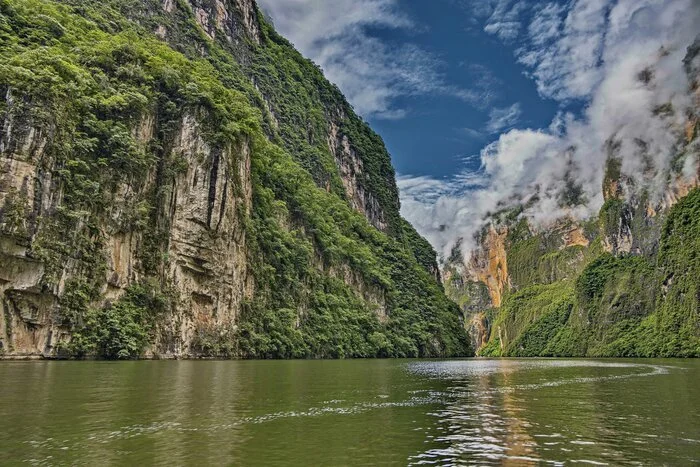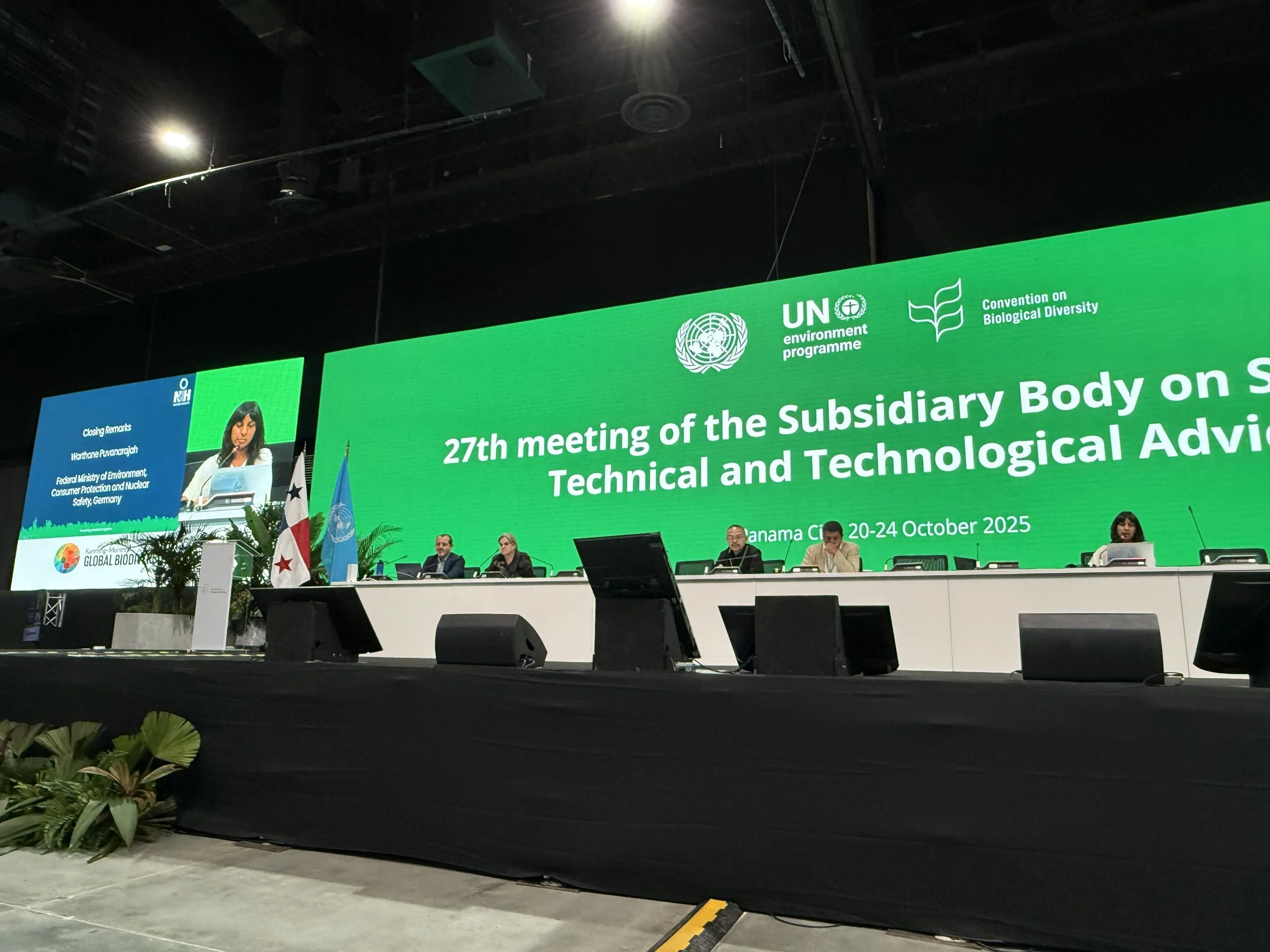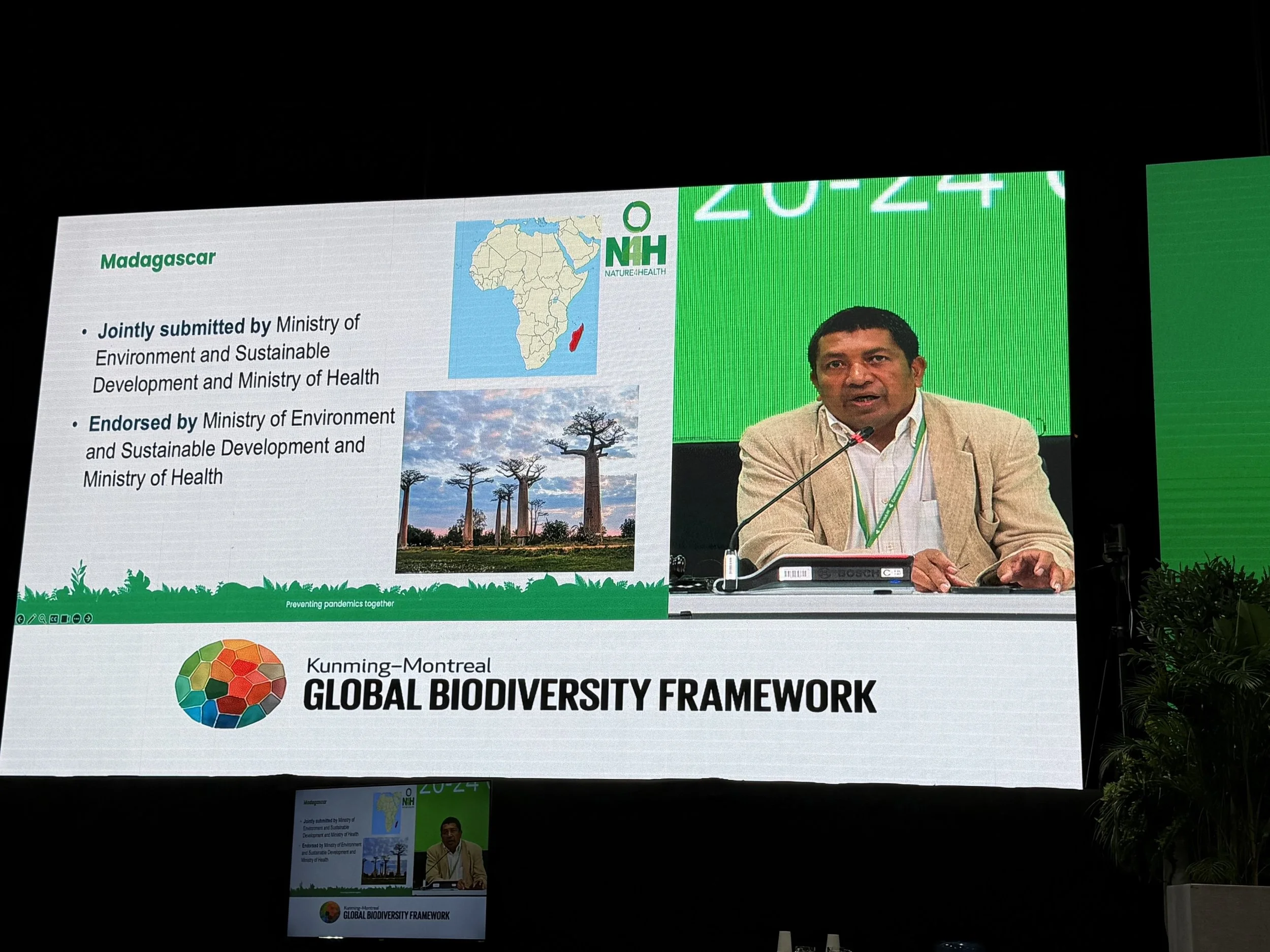
Reinforcing Country Resilience
in Upstream Pandemic Prevention
Building on the success of Phase I, the Nature for Health (N4H) initiative has entered Phase II, expanding its global reach to help more countries implement nature-based, cross-sectoral solutions that reduce health risks while advancing biodiversity and climate goals.
Phase II Partner Jurisdictions
At the CBD SBSTTA-27 in Panama City, on 21 October 2025, N4H officially announced its six new partner jurisdictions.
These jurisdictions are expected to begin their project implementation in early 2026
1. Angola
The Expression of Interest was submitted by the Ministry of Environment, with endorsements from the Ministries of Health and Agriculture. Angola, the most biodiverse country in Africa, hosts over 2,000 species across 15 ecoregions.
However, climate-driven droughts, floods, and environmental degradation continue to disrupt ecosystems and heighten vulnerability to zoonotic and vector-borne diseases.
In response, Angola seeks to strengthen One Health governance, enhance cross-sector coordination, and engage communities to shift from reactive response to proactive prevention.
2. Bhutan
The Expression of Interest was submitted by the Ministry of Agriculture and Livestock, with endorsements from the Ministries of Environment and Health.
Bhutan’s landlocked position and porous southern border heighten vulnerability to cross-border zoonotic threats. Climate-driven droughts, floods, and rising temperatures are disrupting ecosystems, particularly in southern agricultural zones and the northern highlands.
Recurring zoonotic outbreaks, wildlife crime, and intensive livestock farming compound these risks. Despite a national One Health Strategic Plan, progress is limited by funding and coordination gaps. Bhutan aims to strengthen governance and cross-sector collaboration to move from reactive control to proactive prevention.
3. Madagascar
The Expression of Interest was jointly submitted by the Ministry of Environment and Sustainable Development and the Ministry of Health, with endorsements from both institutions.
Madagascar faces high vulnerability to zoonotic and climate-related health threats, particularly in underrepresented regions such as Melaky (deforestation), Ihorombe (livestock spillover risks), and Atsimo Atsinanana (biodiversity loss). Coastal zones also experience frequent outbreaks linked to marine biotoxins.
Recurring zoonotic diseases, illegal wildlife trafficking, and climate change compound these risks, while urbanization and unsustainable farming intensify human–wildlife–livestock interactions. The National One Health Platform aims to strengthen coordination, governance, and prevention to build national resilience.
The Expression of Interest was submitted by the Ministry of Environment, Biodiversity, Climate Change & Energy (SEMABICCE) of Campeche, and endorsed by the Ministry of Welfare. The state’s Balam Beh Biological Corridor is a critical area for biodiversity, supporting rich ecosystems and the livelihoods of local communities.
However, deforestation, habitat fragmentation, agricultural expansion, and climate change are driving rising zoonotic disease risks, recurrent outbreaks, and pressures on ecosystem services. Informal coordination among government sectors and partial community engagement have so far limited the effectiveness of prevention efforts.
Campeche aims to strengthen cross-sector governance, expand participatory approaches with Indigenous Peoples and local assemblies, and implement sustainable practices to enhance biodiversity, climate resilience, and public health.
4. State of Campeche (Mexico)
5. Pacific Island Countries
The Expression of Interest was submitted by the Secretariat of the Pacific Regional Environment Programme (SPREP), with endorsements from the Department of Science and Capability, Pacific Community. It covers 26 Pacific Island countries and territories, many of which are remote and resource-limited, with biodiversity-rich ecosystems vulnerable to climate change, invasive species, and extreme weather.
Pacific Islands face rising zoonotic disease risks driven by climate change, land-use shifts, and invasive species. Efforts aim to shift from reactive responses to proactive health strategies.
Planned actions include co-developing policies to reduce biodiversity loss and zoonotic spillover, strengthening regional coordination, empowering Indigenous Peoples and local communities, and building capacity for sustainable ecosystem management and data-driven decision-making.
6. Uzbekistan
The Expression of Interest was submitted by the Ministry of Ecology, Environmental Protection and Climate Change, with endorsements from the Ministry of Health and the Committee for Veterinary and Livestock Development. It focuses on Karakalpakstan, a region affected by desertification, biodiversity loss, and health challenges linked to the Aral Sea crisis.
Climate change, overgrazing, and land-use changes have disrupted wildlife habitats, with species like the Ustyurt urial and ibex sharing grazing areas with livestock. Communities rely on livestock but have limited access to health services, increasing zoonotic disease risks.
Uzbekistan aims to move from reactive disease control to proactive, ecosystem-based prevention by strengthening cross-sector coordination, developing nature-based solutions, enhancing data integration, and empowering local communities.
About the Announcement
The announcement took place during a side event titled “Catalyzing Investments Linking Biodiversity and Health”, held at the CBD SBSTTA-27 in Panama City.
Moderator: Doreen Robinson, Deputy Director, UNEP Ecosystems Division & Chair of N4H Steering Committee
Opening Remarks: Jihyun Lee, Deputy Executive Secretary, Convention on Biological Diversity (CBD)
Presentation: Julian Blanc, Head of N4H Secretariat
Phase I countries — Ecuador, Ghana, Kenya, Mongolia, Rwanda and Vietnam — also shared experiences and lessons learned in advancing upstream prevention.
A Systems Approach to Prevention
N4H operationalizes the environmental dimensions of One Health by uniting leading global organizations:
Through this collaboration, N4H supports countries to:
Develop cross-sectoral, evidence-based policies
Address ecological and human drivers of disease emergence
Contribute to the Kunming–Montreal Global Biodiversity Framework
Advance the Global Action Plan on Biodiversity and Health
CBD, UNEP, UNDP, WHO, WOAH, and IUCN, supported by the Government of Germany through the International Climate Initiative (IKI).
"We need a change in mindset to prevent pandemics — to collectively invest in upstream prevention, deeply rooted in the health of the environment, and linked to climate action, biodiversity conservation, pollution and waste control."
- Katie Woolaston, Member, N4H Technical Advisory Group -
Moments from the Phase II Launch















